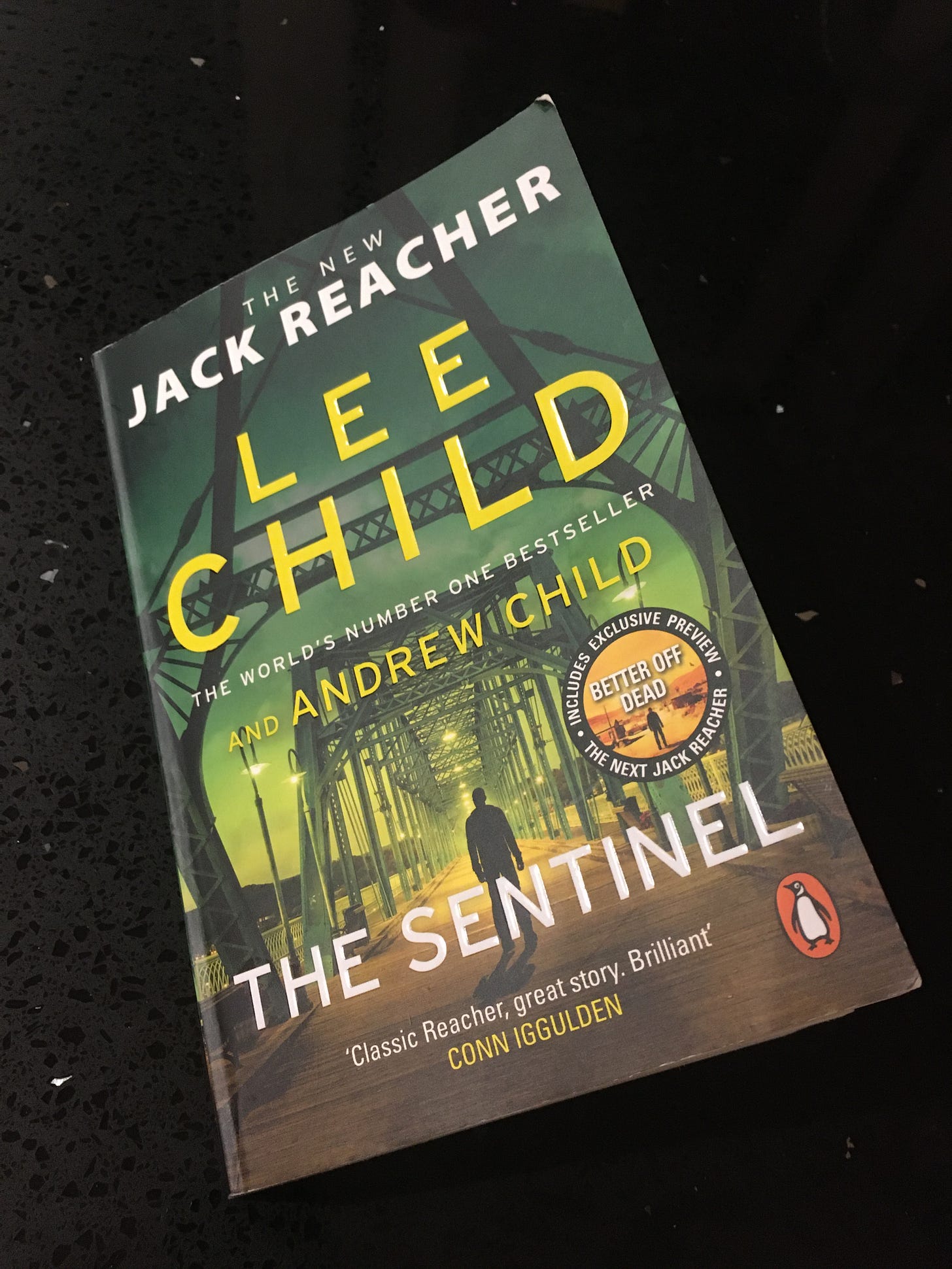Learning from Lee Child
Or why, after everything, it all comes back to a glass of wine and a bag of chips
I was ten minutes from getting on my first plane since the pandemic began when I remembered I’m a nervous flier. The memory was physical, a lurch in my gut. Cold in my fingers. After eighteen months I’d actually forgotten.
Most people don’t know, and how could they? I used to fly around the world four times a year. Wake up in LHR. Go home and swap out work clothes for beach clothes. Zag over to LGW to surf in Portugal. Fly out to Tanna on a plane that teeters over the crater of a live volcano like a moth near a flame.
Three things keep me grounded. Wine, preferably a light Viognier or a sparkling rosé. A bag of potato chips. And Lee Child.
I dashed to the bookstore, thinking, there must be others like me. Why else would there be a bookstore at every airport? I read the back covers quickly. The new Sally Rooney novel… no, that would take more brain cells, and my flight would only be a couple of hours. Other books that the powers-that-be called poignant, or a triumph.
You don’t want to read Poignant when someone’s in the seat next to you, reading over your shoulder.
And Triumphs are a damned bore.
I remembered being at my cousin’s house years ago. It was a quiet evening, with that frisson in the air that meant that someone was going to start an argument if we didn’t agree on dinner and a movie. Fast. There were many options. Three languages to choose from. Some indie thing.
“Just pick a Tom Cruise Jack Reacher flick, it’s guaranteed to be watchable,” my cousin’s husband said.
It was. I only learned later that there were books. That Lee Child only ever writes one draft. That Jack Reacher was supposed to be huge. Or that Tom Cruise can make himself seem bigger than he is, and camera angles do the rest. Then, I was just glad of something everyone could agree on.
At the bookstore, with five minutes left to board, I picked another Lee Child novel. It was guaranteed to be readable, and I could finish it by the time the plane landed in Zurich.
Because Lee Child is like potato chips. Each sentence is cut fine, salty, and lands with a crunch. There’s a lot to learn from that.
Child says to write the fast stuff slow and the slow stuff fast. He can blow through a man’s seven-day post-firing funk in the span of two pages, keeping us guessing with lines like “He didn’t own a gun or a knife,” and “His days of showing mercy were over. Unless…”
Then there’s the fast stuff slow. A potential kidnapping stretches for four pages, with even the realization of what’s happening taking a full paragraph. “A moment later Reacher’s interest ratcheted all the way up. A signal from some ancient system hardwired into the back of his brain. An instinctive recognition. Pattern and movement. Predators circling. Moving in on their prey. Two men and a woman. Spread out. Carefully positioned. Coordinated. Ready to spring their trap.”
Child uses periods the way other writers use commas. Slowing things down. Staccato. Using alliteration and varying sentence length to add melody and rhythm. Like the music that plays during the action sequence of a movie. Right before the gunshot.
P.S. My flight was just fine, and everything worked out in the end.



